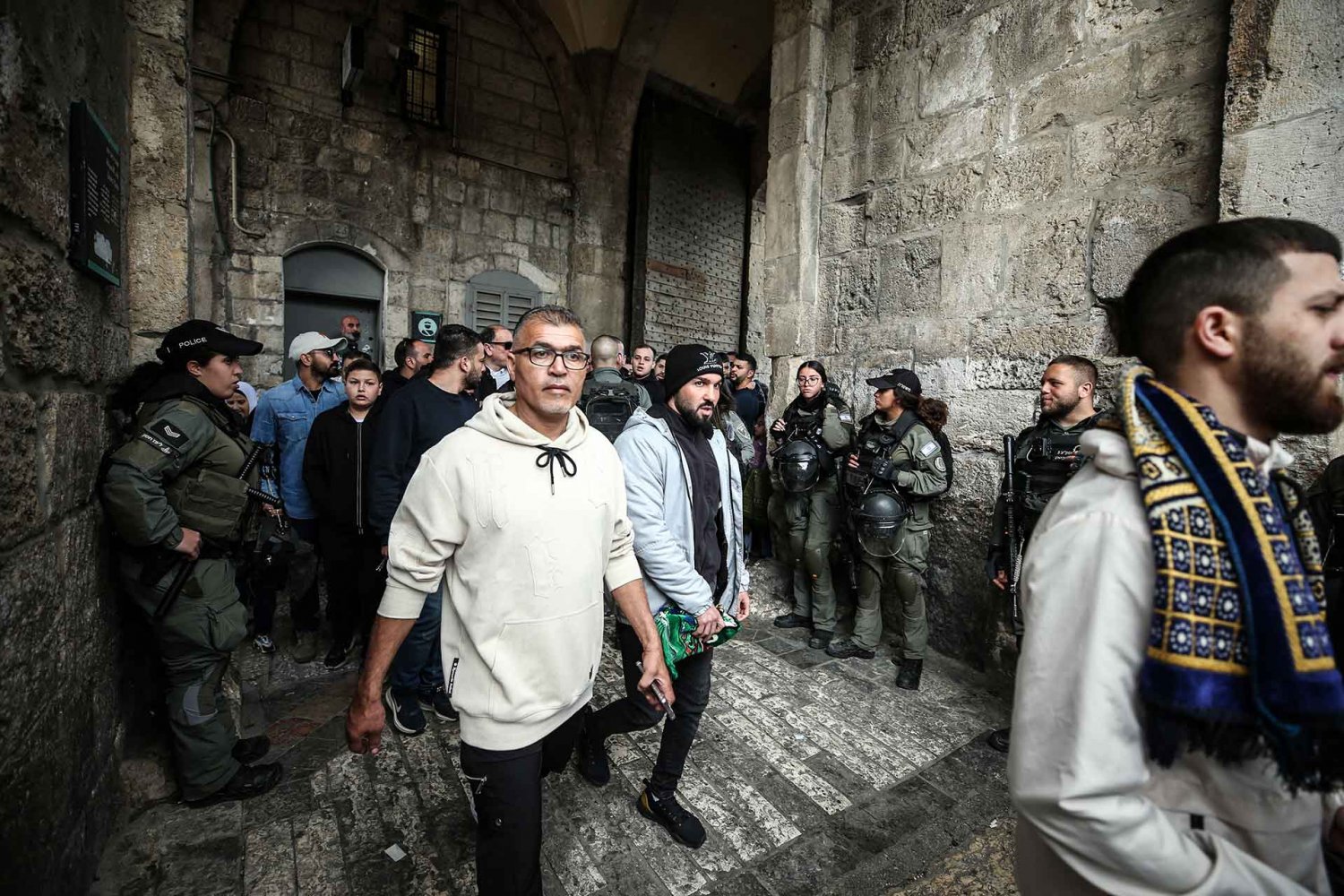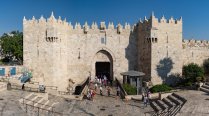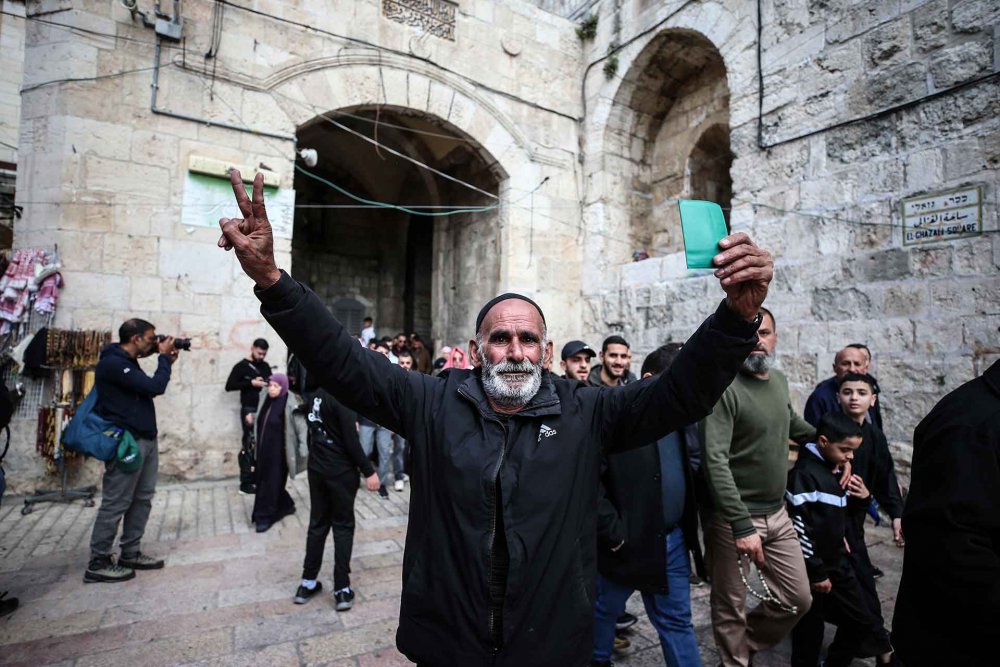The first Friday prayers of the holy month of Ramadan at al-Aqsa Mosque in Jerusalem proceeded with unexpected calmness, especially given that the Israeli police had turned the city into a military barracks.
The Israeli police who are usually present at the entrances to the mosque and who normally harass everyone who passes through them disappeared from those gates and stationed themselves at the gates of the Old City instead. This took place despite threats issued earlier in the month by Israel’s Minister of National Security Itamar Ben-Gvir, who urged extreme restrictions, such that only Muslims over the age of 70 would have been allowed in to pray during Ramadan.1
Many Jerusalemites use public transportation to reach the Old City, hoping to be able to enter al-Aqsa Mosque. Uday Nasser, 27, from the Palestinian neighborhood of Beit Hanina, north of the Old City, took the light rail train, disembarking at the station opposite the Jerusalem Municipality building. From there, he walked to Jaffa Gate, one of the main gates to the Old City, but on the opposite side from the Damascus Gate, to the Muslim Quarter. To his surprise, he did not find any police present at the Jaffa Gate entrance.
He quickly filmed the situation on his phone and uploaded it to his social media. His goal was to alert Palestinian Jerusalemites that this particular entrance to the Old City was unexpectedly easily passable. He urged his network watching from home to come to al-Aqsa and pray in person.
His video spread quickly through the various WhatsApp groups.
Uday continued walking down from Jaffa Gate to Bab al-Silsila road. There he discovered a barrier opposite Bab al-Silsila at the entrance to al-Aqsa Mosque. Again, he was surprised that he was still not stopped, although he is from the gender and age categories that the Israeli police have been preventing from entering al-Aqsa for prayers since the al-Aqsa Flood Operation and Israel’s declaration of war on Gaza on October 7, 2023.



